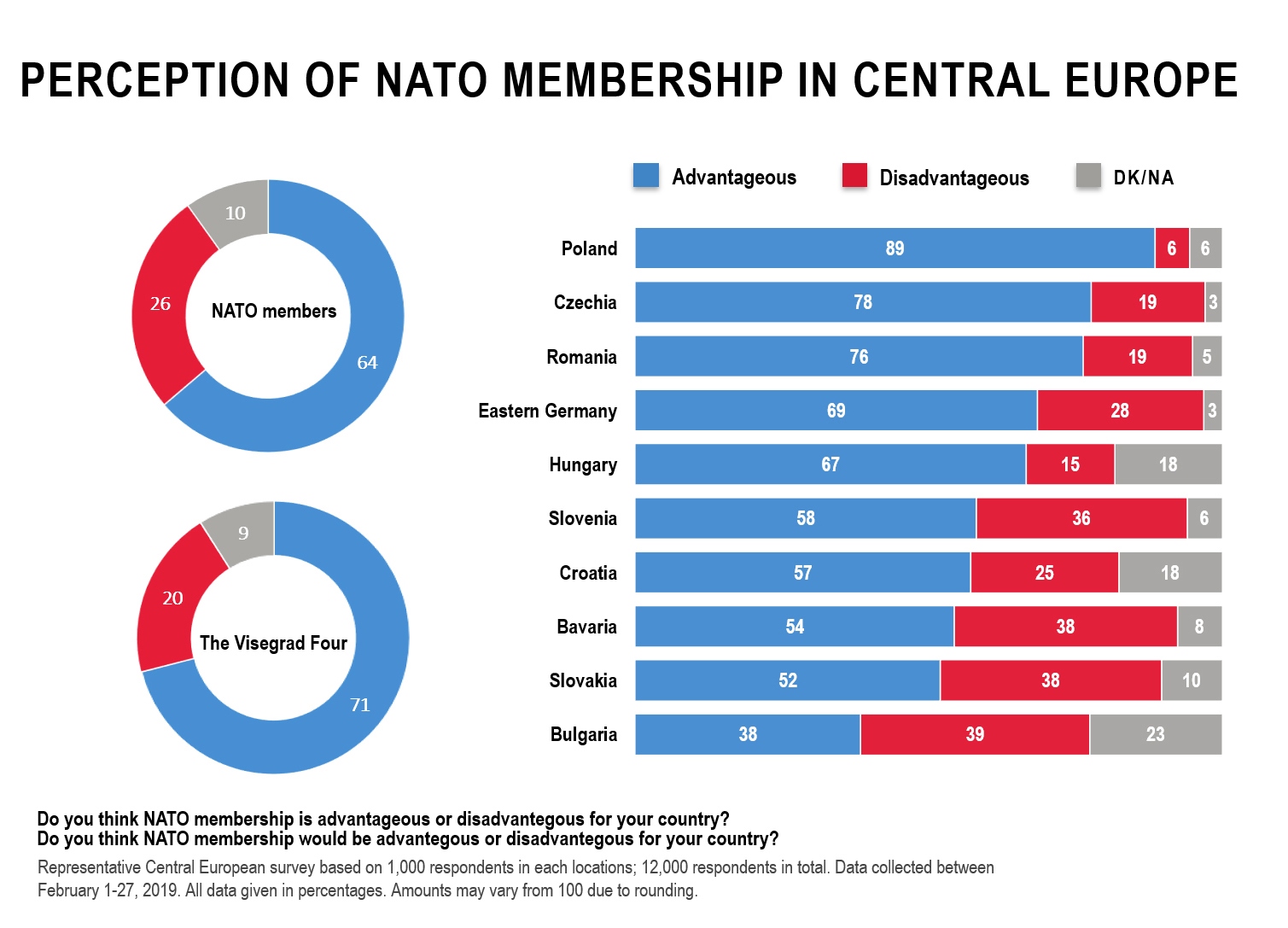An average of 71 per cent of Visegrad Four citizens of voting age hold a favourable view of their country’s NATO membership, according to an opinion poll conducted by Nézőpont Intézet in twelve Central European countries and regions.
The North Atlantic Treaty Organization was founded on April 4, 1949. It makes for important news on the 70th anniversary of NATO and the 20th anniversary of the accession of Central Europe that in ten countries and provinces of the region such as Bulgaria, Czechia, Croatia, Poland, Romania, Slovakia, Slovenia, Hungary, Bavaria and Eastern Germany, 64 percent of respondents consider NATO membership an advantage and 26 percent a disadvantage for their respective countries.
As residents in countries with larger populations support the North Atlantic Alliance more, this means that out of the 100 million Central European voters, 71 million are in favor of NATO membership.

Within Central Europe, V4 member states are the most committed to NATO. An average of 71 percent of the people living here consider NATO membership an advantage, and only one-fifth (20 percent) of them consider it a disadvantage. In Hungary, two-thirds of voters (67 percent) consider membership an advantage and only 15 percent consider it a disadvantage. The data shows Poland’s commitment as the most prominent: 9 out of 10 Poles (89 percent) regard the military organization positively. Figures are the lowest for Slovakia, however, the majority (every second citizen at 52 percent) is pro-NATO.
Among non-NATO members, in Austria (19 percent) and Serbia (17 percent) less than one-fifth of voters think that NATO membership would be beneficial for their countries. In the case of the Austrian respondents, the effect of the country’s “eternal neutrality” can be felt in the more negative perception of NATO membership, and in the case of Serbia it may be due to the country’s stronger ties with Russia.
Methodology
Nézőpont Institute conducted the computer assisted telephone interviewing survey (CATI) over February 1-27, 2019 in 10 Central-European countries or regions (Czech Republic, Poland, Hungary, Slovakia, East Germany, Bavaria, Romania, Slovenia, Bulgaria, Croatia) with 1,000 respondents in each country or region. The sample is representative for the population aged 18 and over by gender, age, region, type of settlement and level of education. In case of a sample size of 1,000 the maximum sampling error is 3.1 percent.
